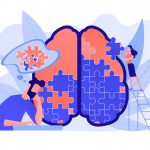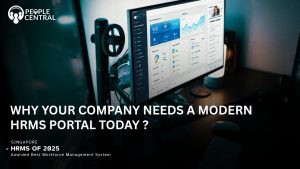Welcome, dear readers, to a thrilling expedition into the vibrant realm of human resources, uniquely tailored for Singapore in 2024. As the city-state known for its innovation and progressive business environment, Singapore offers a compelling backdrop to explore the ever-evolving HR landscape. We’re about to embark on a captivating journey through the key trends that will redefine the world of work in the Lion City.
2024 HR Trends in Singapore: Where the Magic Happens
Now, let’s dive headfirst into the heart of the matter—the 2024 HR trends that will shape Singapore’s employment landscape.
The Rise of Remote Work: Unlocking Boundless Possibilities
Remote work isn’t just a trend; it’s a seismic shift in how we perceive the workplace. The events of the past years have catapulted this practice into the mainstream. In 2024, remote work will no longer be a choice; it will be the cornerstone of HR practices, offering unparalleled flexibility and access to a broader talent pool. Include Remote team-building activities that will foster camaraderie and ensure that remote workers feel connected to their colleagues and have equal development opportunities.
AI-Powered Recruitment: The Wizard Behind the Hiring Curtain
Picture this: AI algorithms swiftly scanning resumes and pinpointing top candidates, freeing up HR professionals to concentrate on strategic endeavors. In 2024, Artificial intelligence powered recruitment will be the magic wand that streamlines hiring processes, making them faster, more efficient, and ultimately more successful.
Employee Well-being: The Pot of Gold at the End of the Rainbow
In 2024, it’s not just about business; it’s about people. Employee wellbeing will be the heartbeat of HR practices. Companies will invest in programs that champion mental and physical health with financial well-being, recognizing that a healthy workforce is a happy and productive one.
Skill Development Initiatives: Crafting Tomorrow’s Workforce
Singapore’s commitment to lifelong learning shines even brighter in 2024. Employers will actively support skill development, providing opportunities for upskilling and reskilling and filling their skills gaps with career development opportunities. This ensures their workforce remains not just competitive but ahead of the curve. Get started with advanced learning management systems which will streamline training and development, making the process efficient and easy to navigate.
Diversity and Inclusion: Celebrating Uniqueness
Diversity will be celebrated, and inclusion will be non-negotiable. Organizations will make it their mission to create environments where all employees feel valued, regardless of their background, gender, or orientation.
Hybrid Work Models: The Perfect Blend
The office, once a daily destination, will transform into a destination of choice. Companies will craft hybrid work arrangements, allowing employees to balance in-office and remote work, maintaining the spark of collaboration while granting the freedom to work from anywhere.
Green HR Practices: Sustainability as the North Star
Sustainability will be at the core of HR practices. Businesses will adopt eco-friendly policies and encourage sustainable practices among their employees, ensuring that the office of the future is not just productive but environmentally conscious.
Enhanced Data Analytics: Illuminating HR’s Path
In 2024, HR will be more data-savvy than ever. Advanced analytics will serve as the torch, helping HR professionals make informed decisions regarding hiring, employee engagement, and performance evaluations.
Mental Health Support: Healing Hearts and Minds
Mental health will take the spotlight as a top priority. Employers will offer counseling services, stress management programs, and create stigma-free environments, fostering emotional well-being.
Gig Economy Integration: Navigating the Sea of Freelancers
The gig economy isn’t just a trend; it’s a revolution. Singapore will fully embrace freelancers, offering more opportunities for project-based work arrangements and fostering a culture of collaboration between full-time and freelance employees.
Leadership Development: Forging Tomorrow’s Leaders
Strong leadership will be the lighthouse guiding organizations through the storms of change. Companies will invest in leadership development, honing the skill sets needed to navigate the dynamic business environment.
Digital Onboarding: Streamlining the Welcome
Traditional onboarding will make way for digital processes, enhancing efficiency and ensuring a warm welcome for new employees.
Enhanced Cybersecurity Training: Safeguarding the Digital Frontier
With the rise of remote work, cybersecurity training will be essential to protect sensitive data and ensure secure online operations.
Virtual Reality Training: Learning Reimagined
Innovative training methods, like virtual reality-based programs, will immerse employees in interactive learning experiences, making training more engaging and effective.
Flexible Benefits Packages: Tailoring Rewards to Individuals
Benefits will be as unique as the employees themselves. Highly customizable benefit packages will cater to diverse employee needs, fostering loyalty and job satisfaction.
Gamification of Learning: Fun and Learning Hand in Hand
Learning will be gamified, turning training into an engaging adventure for employees leading to a fun & productive work-life balance.
Blockchain for HR: Trust in Every Transaction
Blockchain technology will revolutionize HR systems by verifying employee credentials, ensuring data integrity, and enhancing the trustworthiness of HR processes.
Employer Branding: The Magnet for Top Talent
Creating a robust employer brand will be a strategic priority for attracting and retaining top talent.
Predictive HR Analytics: Gazing into the HR Crystal Ball
Predictive HR analytics will allow organizations to foresee talent needs and take proactive measures to address workforce challenges, gaining a competitive edge.
Cross-Functional Teams: The Engines of Innovation
In a complex world, cross-functional teams of flexible work arrangements will be the driving force behind innovation and problem-solving.
Smart Office Technology: Elevating Workplace Experience
HR will leverage smart office technology to create an environment that promotes productivity and employee comfort.
Employee Resource Groups: Fostering a Sense of Belonging
Employee resource groups will support diversity and inclusion, ensuring that every employee feels like an integral part of the team.
Conclusion: Charting Your HR Journey
The 2024 HR trends in Singapore are not just trends; they are keys to unlocking a future of endless possibilities. From remote work’s transformation to AI-powered hiring and diversity and inclusion initiatives, these trends represent a dynamic and inclusive vision for the workplace. To thrive in this ever-changing landscape of industry trends in business performance, embrace these trends and chart your course to success with leveraged positive employee experiences for an impactful business transformation.
Thank you for joining us on this thrilling journey into the future of HR digital transformation in Singapore. The adventure is just beginning, and the best is yet to come for you as business leaders!
FAQs
Ques 1. What’s driving the rise of remote work in Singapore in 2024?
Ans. Remote work is primarily driven by the need for flexible working arrangements and the expansion of the talent pool. Recent global events have accelerated this shift and also enhanced employee experiences with creative solutions for different company cultures.
Ques 2. How can companies ensure diversity and inclusion in the workplace?
Ans. Companies can ensure diversity and inclusion by implementing inclusive hiring practices, fostering a culture of respect, and providing equal opportunities for all employees, regardless of their background leading to employee retention.
Ques 3. What are the benefits of blockchain technology in HR?
Ans. Blockchain technology in HR ensures the authenticity of employee credentials, offering a secure and reliable way to verify qualifications and work history.
Ques 4. How can HR departments prepare for the rise of the gig economy?
Ans. HR departments can prepare for the gig economy by creating strategic workforce planning, creating flexible job arrangements, collaborating with freelancers, and offering training programs for freelancers to ensure alignment with the company’s goals.
Ques 5. What is the significance of employee resource groups?
Ans. Employee resource groups play a vital role in promoting diversity and inclusion, providing employees with a platform to connect, share experiences, and contribute to a more inclusive workplace matching employee expectations.
Ques 6. How will predictive HR analytics benefit organizations?
Ans. Predictive HR analytics will benefit organizations by helping them anticipate future talent needs, make informed decisions, and take proactive measures to address workforce challenges, gaining a competitive edge.








 5
5


























